Twelve years ago Adam Braseel went to prison for murder. Now he wants to clear his name.
PELHAM, Tenn. — Freedom lay as close as the sheet of paper in his hand.
But one word Adam Braseel wouldn't say: Guilty.
"I always swore I would never, ever take a plea," he said. “I’ve been an innocent man in the penitentiary for all these years. But I didn’t know for certain that I could continue to fight.”
Coming home
In the end Braseel held out for a deal he could accept. He came home Aug. 2, nearly 12 years after a Grundy County jury convicted him of first-degree murder for a killing he always denied. His mother and sisters met him at the gate with hugs and tears as he walked out of the Bledsoe County Correctional Complex in Pikeville.
The best-interest plea — also known as an Alford plea — allowed Braseel to continue to insist on his innocence but forced him to accept a felony conviction for aggravated assault. Prosecutors agreed to dismiss the murder conviction in exchange and to give up their fight to keep him in prison in the face of new evidence that pointed to another man as the killer.
Braseel was 24 when a judge sentenced him to life in prison. He’s 36 now, one week into a new life as a free man.
“This was a guarantee that I could come home today,” Braseel said. “I’m just hopeful that I can move on and have a great life and make a difference in other people’s lives the way so many people have made a difference in mine.”
Starting over
Sitting under a shade tree in the back yard of the family home at the foot of the Cumberland Plateau, everything looks back to normal but nothing feels the same.
Braseel can’t rest for a nonstop stream of visitors — family, friends, strangers — coming by to welcome him home. He can’t stop making a list of chores to be done — trees to be cut down, fence rows to be cleaned, a garden to be planted come spring.
He came home once before, in December 2015 after a new judge, Justin Angel, threw out his conviction on Christmas Day and ordered a new trial. That freedom lasted just 10 months — long enough for prosecutors to appeal the decision and for judges at the appellate level to order him back to prison.
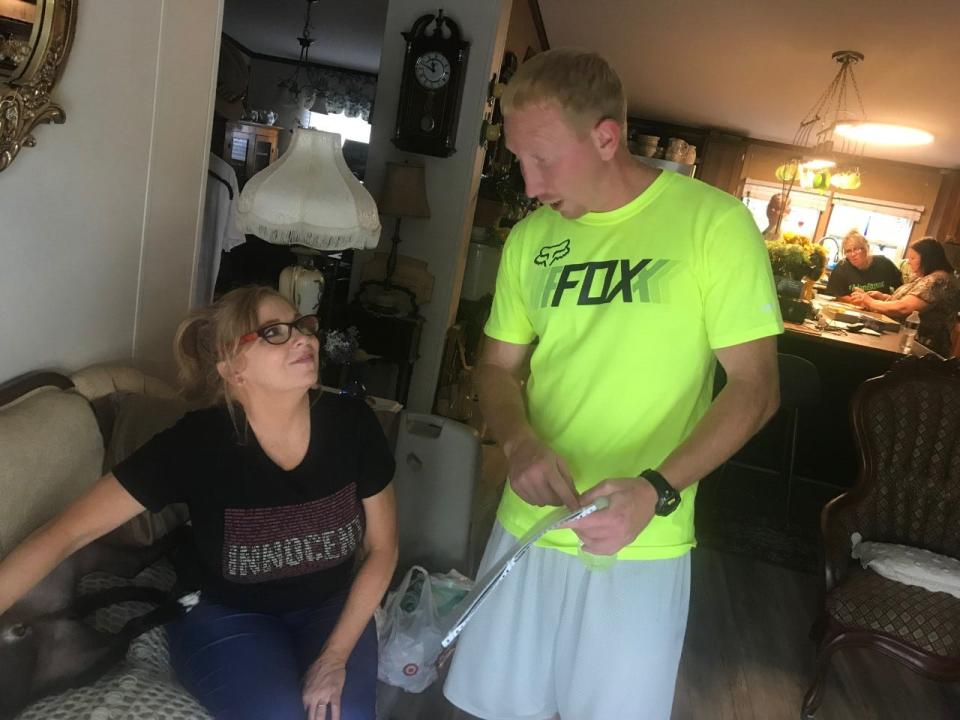
“I keep waiting for this to be over like a dream, for somebody to tap me on the shoulder and jerk me back,” Braseel said. “For all I knew, that could happen again, even if I got a new trial.”
He marked the moments behind bars on calendars sent by his sister Christina, each square a diary and day-planner combined. He scrawled notes, observations, reminders and verses of scripture in writing crammed into each slot tighter than the inmates in their bunks.
“Remember,” one entry read, “you could be an innocent man in prison the rest of your life.”
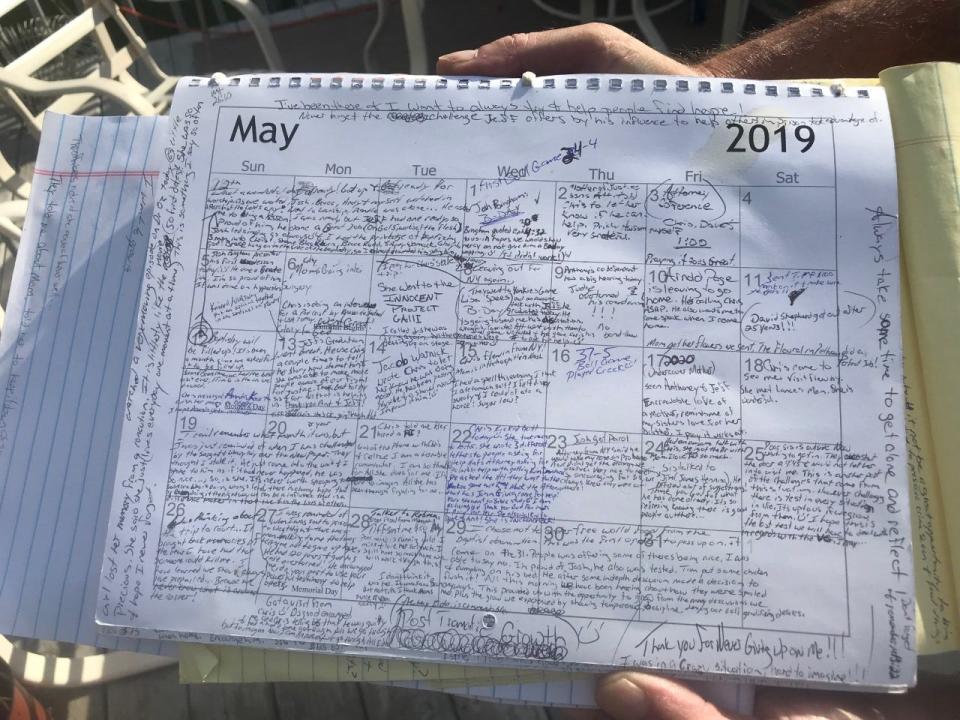
Eyewitness testimony convicted him. A single fingerprint set him free.
Becky Hill swore she recognized Adam Braseel as the red-headed man who knocked at the door of her brother Malcolm Burrows’ home on Melissa Rock Road outside Tracy City the night of Jan. 7, 2006, with a story of a stalled car on the side of the road. Burrows gave the man a ride to help start the car and never came back. Deputies found his bloody, battered body by the roadside, his skull nearly split in two.
Hill said the man came back to the house and beat her nearly to death before her son, Kirk Braden, chased him away. Both identified Braseel in testimony prosecutors called “better than CSI.”
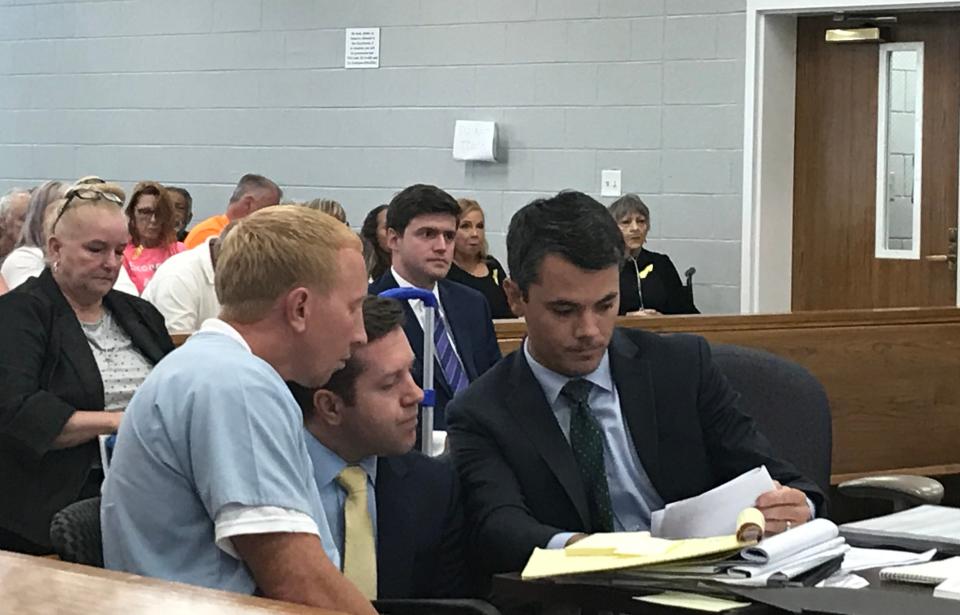
But key pieces of evidence didn’t fit. Tests found no fingerprints, DNA or other traces of Braseel at the scene and no trace of Burrows’ blood in Braseel’s car or on his clothes. Friends swore he was with them — in a church parking lot, then at a friend’s home — at the time the killing happened.
Hill, who suffered head injuries and brain damage, couldn’t give a consistent account of how she picked out Braseel as her attacker. And she and her son made their identifications from a photo lineup with only one photo — Braseel’s — that resembled her description of the red-headed man.
That testimony satisfied the jury and the state Court of Criminal Appeals, which turned aside questions about the lineup as brought up too late.
“The witnesses expressed certainty,” Judge Timothy Easter wrote.
That was good enough for the state.
A digital discovery
Then in June 2017, as Braseel’s lawyers filed a last-ditch appeal, a fingerprint specialist at the Tennessee Bureau of Investigation’s crime lab in Nashville uncovered a match missed a decade before. New and improved software enabled the lab’s computers to conduct a more exhaustive search of similarities between the millions of prints stored on digitized cards in the FBI’s nationwide database.
“We noticed a sharp increase in the amount of identifications we were getting,” said Agent Kendra Fleenor, a lab supervisor who testified at Braseel’s Aug. 2 hearing. “We started re-entering old latent (prints) from unsolved homicide cases.”
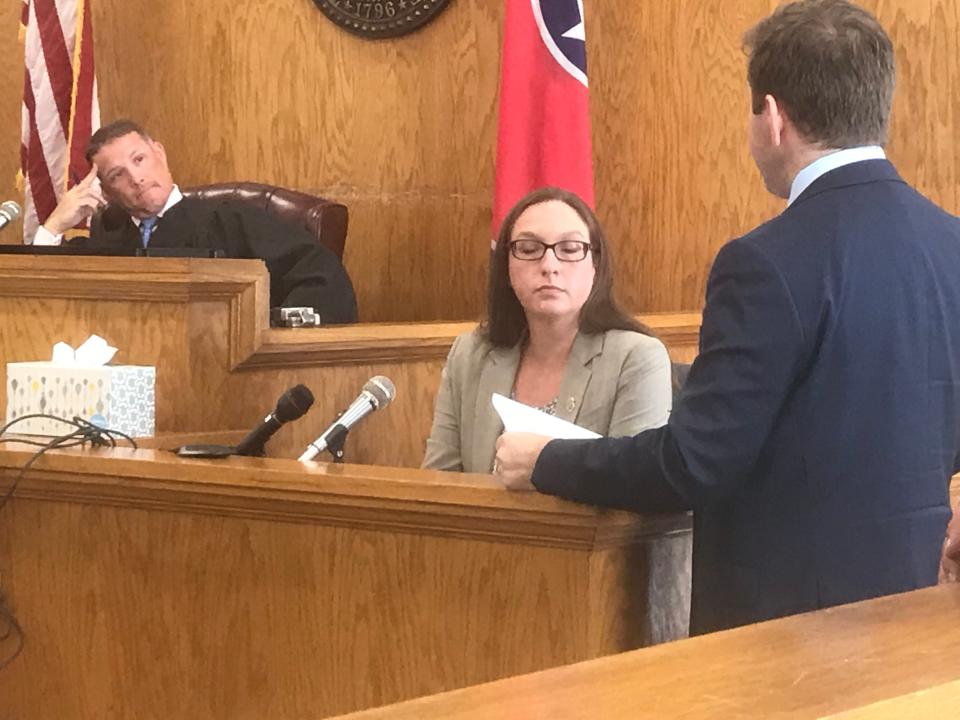
The Burrows killing had been closed since Braseel’s conviction, but some of the prints lifted from the murder scene had never been matched to any human, living or dead.
The lab’s computers scanned through the digital jungle of loops, whorls and arches to flag a potential match between two prints — one unidentified from the inside passenger door handle of the Chrysler driven by Burrows on the night of his death, the other to the right index finger of Kermit Eugene Bryson.
Bryson was 27 the night of the killing, on parole for aggravated burglary. He and Braseel each weighed about 130 pounds, with red hair, fair skin and medium builds. They stood about 2 inches apart in height and about 4½ years apart in age.
Two years after the killing on Melissa Rock Road, Bryson shot a Grundy County deputy, Shane Tate, who’d shown up to arrest him for violating probation, then ran. Bryson killed himself 14 hours later as officers closed in.
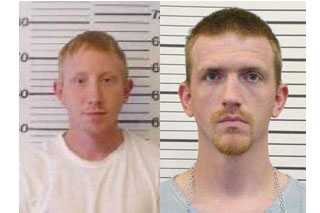
A match made
The computer search spotted 10 similarities between the unidentified print and Bryson’s. Agent Elizabeth Reed and Fleenor, her boss, reviewed the prints and confirmed the match.
“I thought it could be important,” Fleenor said. “Once we verified the match, I informed my chain of command. I would say this entire situation is a unique situation.”
Word of that break in the case went all the way to the top of the TBI and to prosecutors in the 12th Judicial District, which includes Grundy County. Braseel’s lawyers didn’t learn of the match for another year and a half.
Defense lawyers Alex Little and Zack Lawson knew the prints offered their best hope for overturning the conviction. Grundy County Sheriff Clint Shrum, elected since Braseel's conviction, broke with prosecutors and called for a new trial.
Mike Taylor, the district attorney general, and Steve Strain, the assistant district attorney general who prosecuted Braseel at trial, insisted the print proved nothing — only that Bryson had been in the car at some point before the killing.
But latent prints like the one lifted from the door handle, Fleenor testified, “are very fragile,” as delicate as snowflakes or spiderwebs.
“If anything comes into contact with it, it can be obliterated,” she said.
In other words, the print couldn’t have been on the door handle for long — and Bryson had most likely been the last person to touch it.

Making the choice
The night before the Aug. 2 hearing, prosecutors made Braseel an offer: Plead guilty to second-degree murder and leave prison in five more years.
“It was kind of like a spit in the face,” Braseel recalled. “I said, ‘No deal.’ I could never admit to something I didn’t do.”
As Fleenor stepped down from the witness stand, a new offer came: Plead to manslaughter.
Prosecution and defense disappeared behind closed doors. Offers and counter-offers bounced back and forth in raised voices.
Attorneys huddled with their client as deputies and state corrections officers stood guard. A crowd of family and friends in the courtroom broke into chants of “No deal! No deal!”
But the choice wasn’t theirs to make.
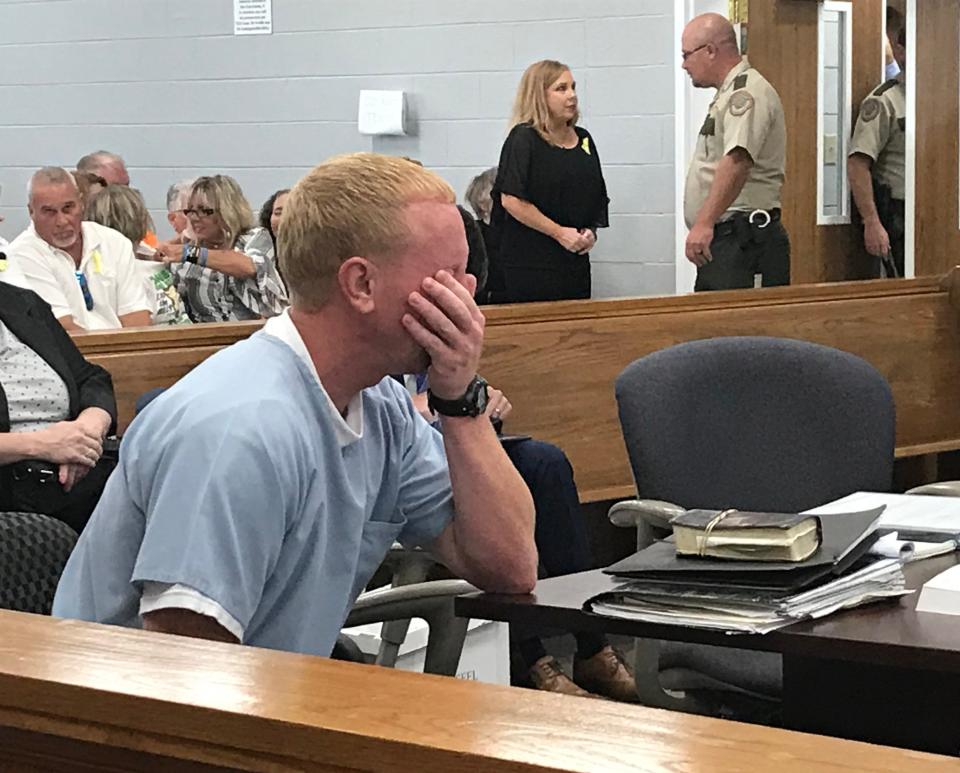
Adam Braseel would make that decision alone.
Angel, the presiding judge, had dismissed the case once before. But prosecutors could appeal again — to the same appeals court that sent him back to prison. A new trial, if granted, could be years in coming.
“It’s so terrifying, not knowing (what would happen),” Braseel said. “I knew somehow everything would be all right. But it all started running through my head: What if we roll the dice and they take all the deals off the table? What if I end up in prison the rest of my life?
“Put yourself in my shoes — to stand trial and have to pay for an attorney, knowing you’re innocent; to be found guilty and put in prison; to be let go — and then brought back to prison and have to pay for another attorney. When will it ever stop? They (prosecutors) had unlimited resources. They would have kept on forever.”
Free to go
After hours of negotiation, the offer came down to its final terms: A no-contest plea to aggravated assault for the attack on Becky Hill. All murder charges dismissed. Sentence reduced to time served. No admission to guilt. Go home today — or take your chances.
The courtroom fell quiet as Braseel stood once more before the judge.
“Do you understand the consequences of your plea?” the judge asked.
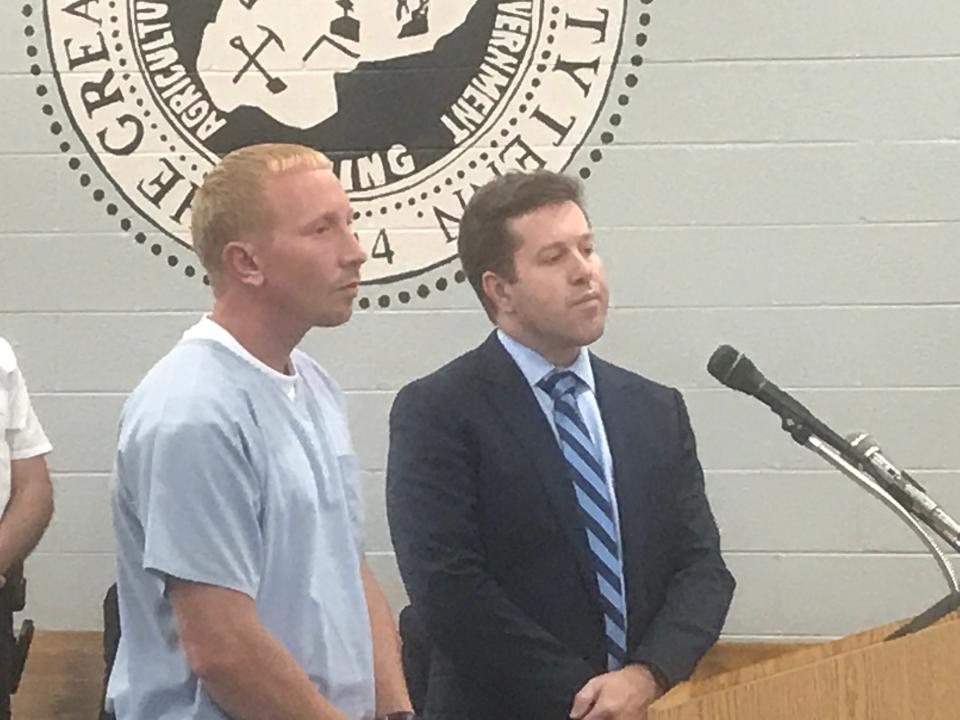
Braseel paused, then nodded.
“Yes, sir,” came the reply.
Cheers broke out in the crowd. The judge shook Braseel’s hand as he left court.
As he walked out of prison and into his mother’s arms, the decision felt right. After the first night at home came the regrets.
His mother Jean’s health failed while he sat behind bars. His sister devoted her life to campaigning for his innocence. His family spent more than $150,000 fighting his conviction.
He missed sunrises and sunsets, birthdays and funerals. He lost 12 years on starting a career, saving for retirement, raising a family.
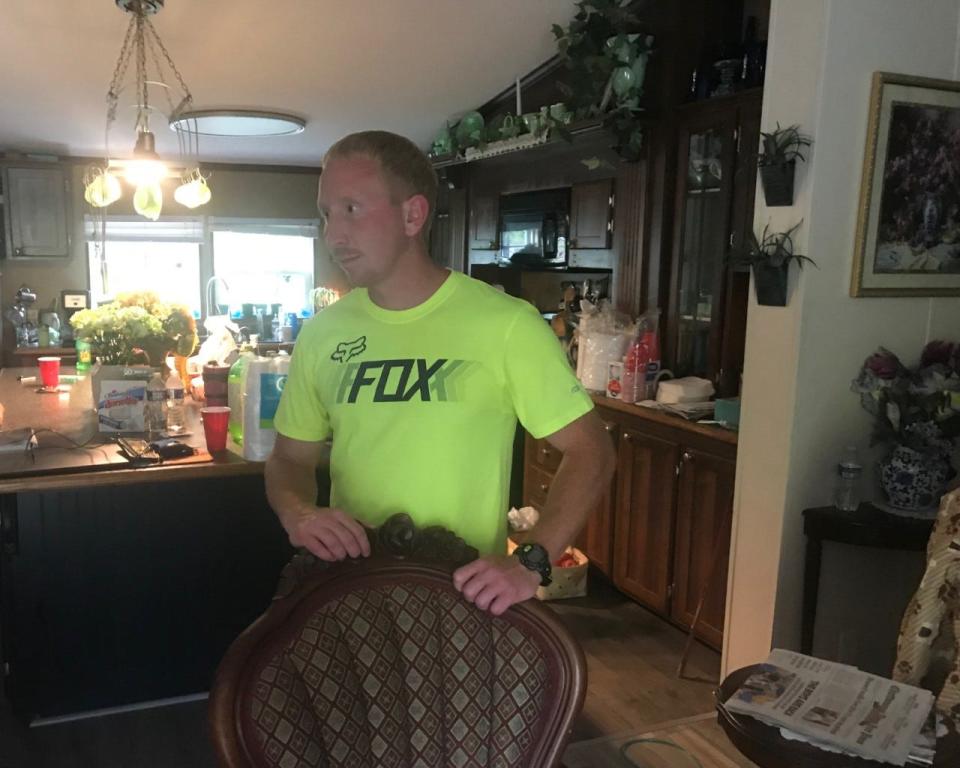
And still his name’s not cleared.
Braseel hopes to take his case to Gov. Bill Lee for a pardon and a rare legal step — exoneration — to remove the last stain on his name. Governors have granted just three exonerations in the state’s history.
“I took a deal to go home as an innocent man,” Braseel said. “How does that make sense? How is that justice? It was a devil's deal. Everybody knows I’m innocent. My family suffered. It’s not complete justice — not yet.”
Thank you for being a subscriber. Your support allows us keep you updated on the news that’s impacting our community.

GET THE MOST OUT OF YOUR SUBSCRIPTION!
Looking for a great way to stay connected? Download the free Knox News mobile app and get the latest news right at your fingertips.
This article originally appeared on Knoxville News Sentinel: Adam Braseel seeks to clear name, 12 years later
